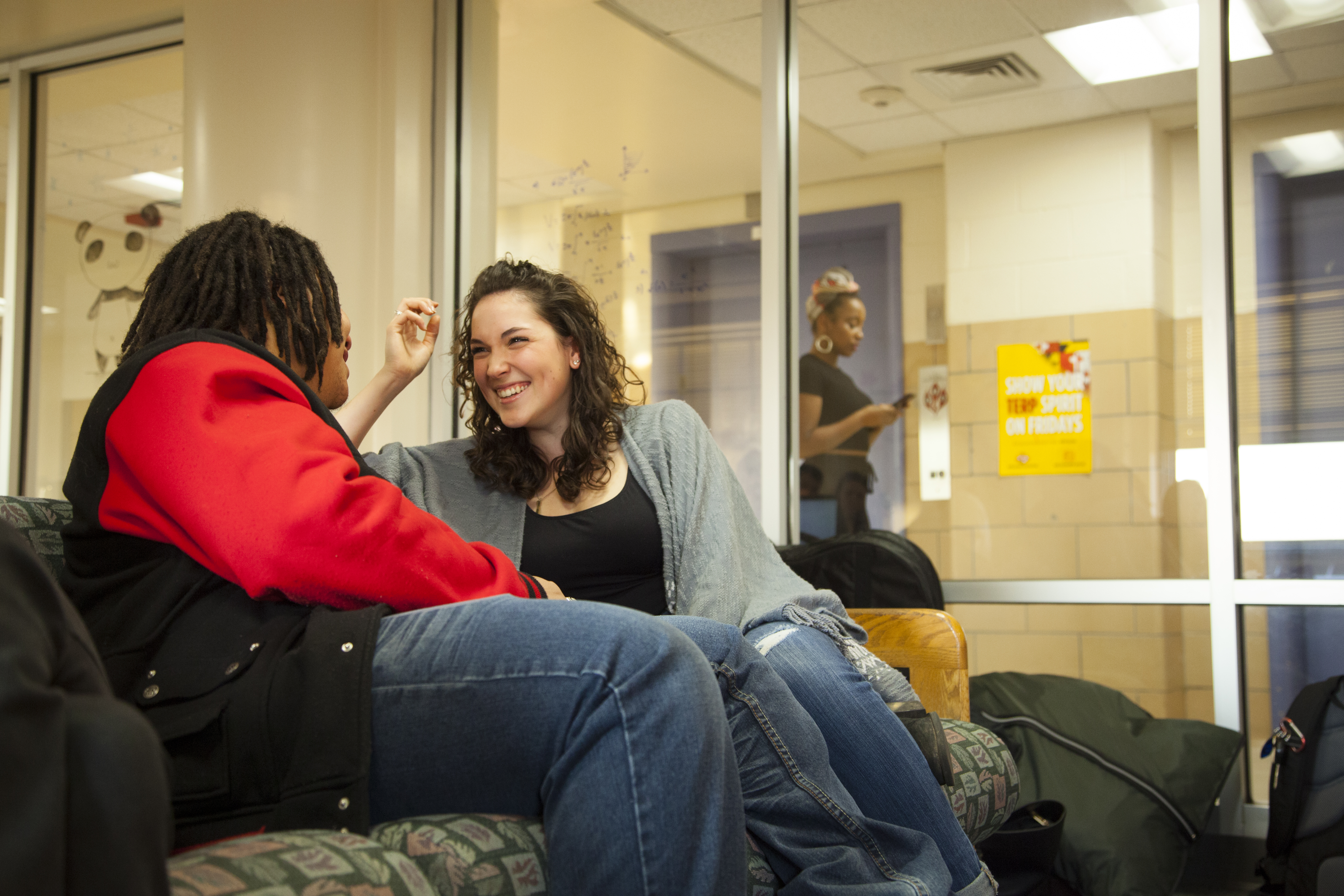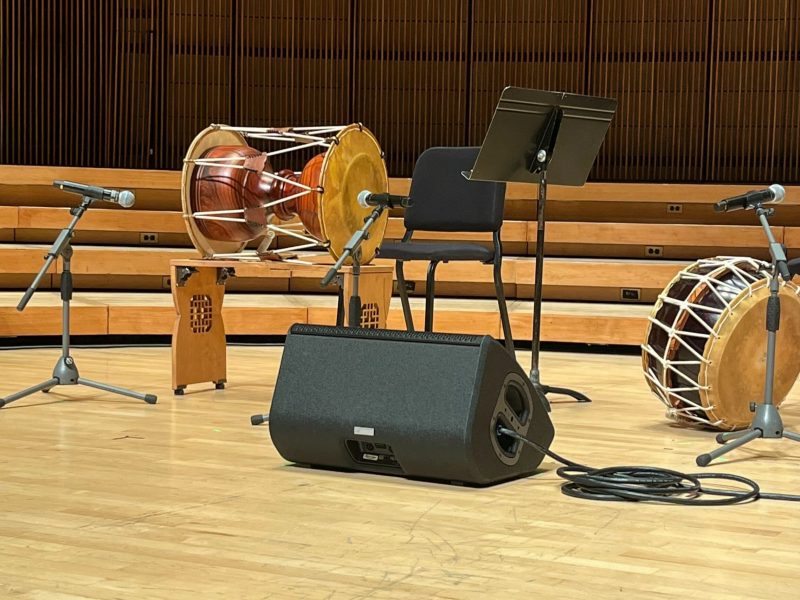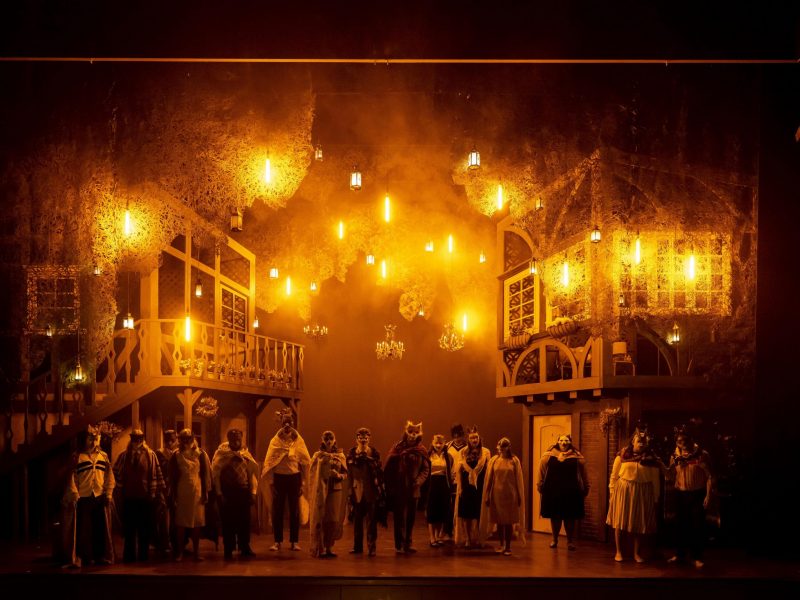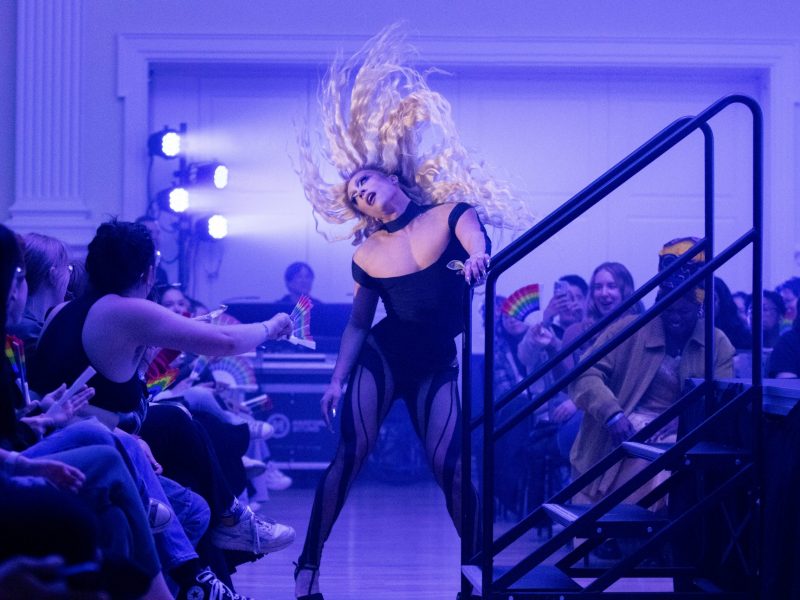On Nov. 9, University of Missouri System President Tim Wolfe resigned after student protests decrying his responses to on-campus racial tensions dragged on for well over a month. On that same day, just hours after Wolfe’s resignation, hundreds of Yale University students marched in response to a heated debate over cultural appropriation, sparked by a university official’s comment that “increasingly, it seems, [American universities] have become places of censure and prohibition.”
Even before those protests, playwright Kirsten Greenidge wrote a play.
From Feb. 26 to March 5, Greenidge’s Baltimore, a tale that aims to spark dialogue about the contentious racial issues sweeping U.S. universities, will hit the Kay Theatre stage in the Clarice Smith Performing Arts Center at the University of Maryland.
The play follows Shelby Wilson, a newly hired resident adviser, who soon discovers a racially charged incident has left eight students, diverse in their races and their opinions, squarely at odds with one another. This leaves Wilson to navigate the complexities of identity in hopes of remedying to the tricky situation.
Philip Kershaw, one of the production’s actors, said Baltimore sets itself apart from other plays by the way it addresses racial tensions. Instead of conversations that often go nowhere, an all-too-common occurrence in our modern discourse about race, the play encourages an open dialogue from people of all backgrounds, Kershaw said.
Baltimore is about “how people from different backgrounds can engage in the same conversation and have a good conversation — a meaningful one without devolving into just a mess,” the senior history and theatre major said. “So, what does a conversation look like, and what does that conversation include?”
But before student performers could convey that ideal conversation on stage, they had to engage in it themselves. Last semester, students slated to perform in Baltimore enrolled in a semester-long course that explored identity in theatre.
That course was “very much needed,” senior Avery Collins said, because it bonded the cast and set a solid foundation of trust.
“If we just jumped right into this production and weren’t expected to open up our individual stories and narratives, it would have been a lot more difficult going in with strangers,” the theatre major said.
The intertwining of identities in the play is reflected within the cast and crew as well. As a gay white man, senior Jack Riley said, he has experienced his own share of difficulties, but being a part of Baltimore as stage manager reminded him of the struggles others face.
“I have certainly faced adversity in my own right, but definitely never to the extent that other people have,” Riley said. “That moment of realization really jolts you awake.”
Baltimore also attempts to change the perception of what exactly constitutes racism, Collins said.
“When people think about racism, they always like to go for the big, dramatic effects of it and the big, extreme racist,” Collins said, “but racism can be something as slight as a microaggression.”
Microaggressions are verbal, nonverbal or environmental slights, snubs or insults, intentional or otherwise.
Following the performance, there will be a “talk-back” — a hosted Q-and-A session that will allow the conversation to continue after the final bow.
Baltimore is presented as a part of the Big Ten Theatre Consortium’s New Play Initiative for female playwrights. Tickets start at $10.
CORRECTION: Due to a reporting error, a previous version of this story said playwright Kirsten Greenidge wrote ‘Baltimore’ in response to protests at Missouri and Yale. She wrote the play before they occurred.



